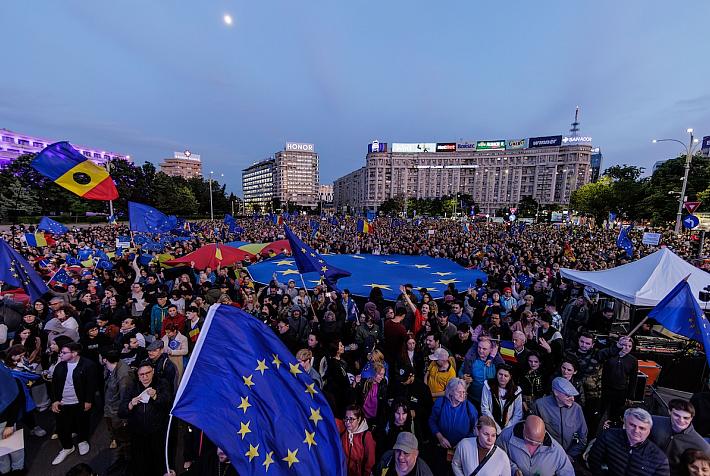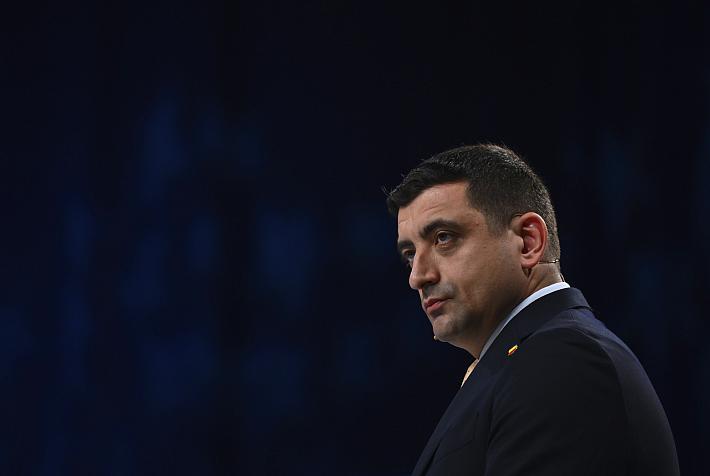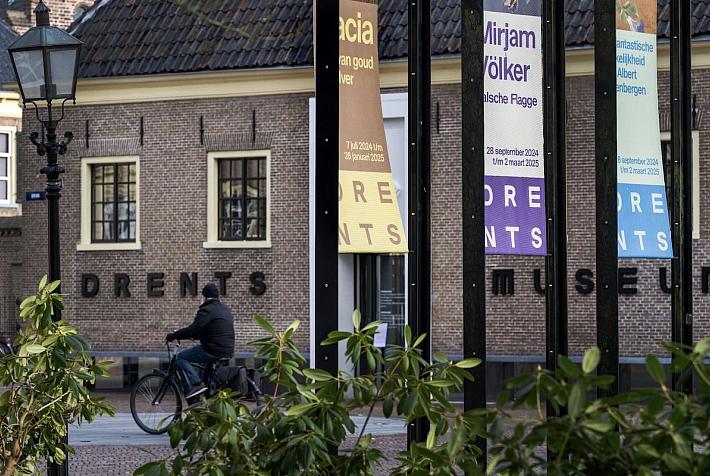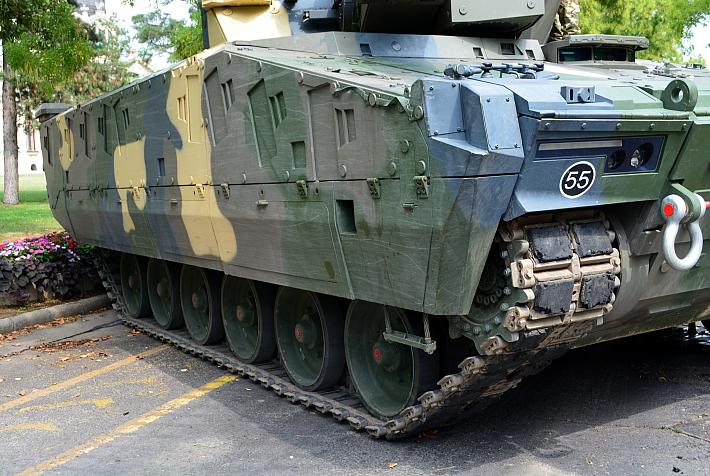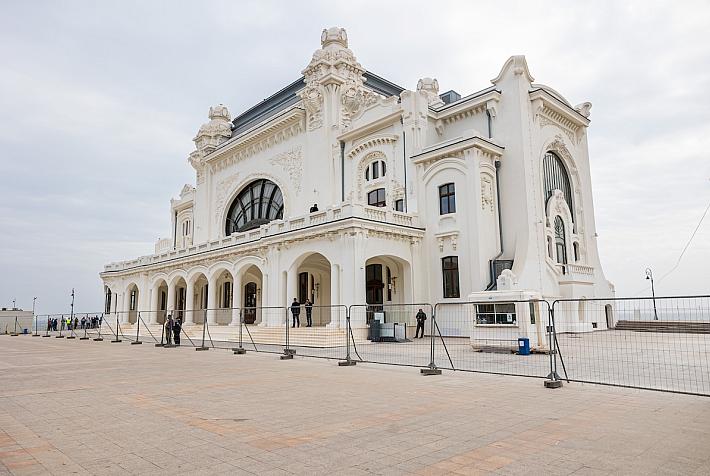A German coach helps people recognize their own miracles
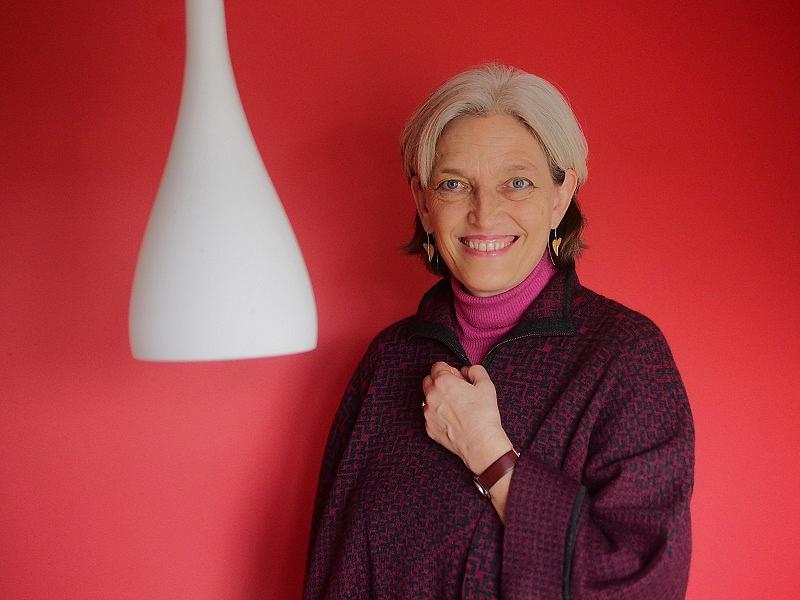
It is a cloudy February day, but Petra Müller - Demary doesn’t mind it. Sunny days are demanding whereas dark mornings don’t ask for much from you. You can take your time and think. Petra, a tall, straight-backed woman, is sitting on a big, cosy couch in her living room while I am on the other couch. It looks like one of Petra’s coaching sessions: she and another person sitting next to each other in search of a personal truth.
Cologne-born Petra is a senior coach and trainer specialized in solution-based therapy. She has been living in Bucharest for more than 20 years. However, this time she is doing the talking and I am asking the questions. We meet for an interview at her home in Piata Domenii, a Bucharest neighbourhood with a lot of Art Deco houses. Petra is wearing a mauve poncho, contrasting the cloudy day and her white skin.
Doesn’t she feel tired to listen to all the difficult stories people tell her and carry around their burden, a friend once asked Petra. But the woman had long overcome the temptation of thinking that she knows what’s best for another person. Maybe at the very beginning of her career she felt like she had to save the person that was coming to her. But she slowly began to grasp that there is no such thing as knowing what’s best for another human being. As a coach or therapist, you can only guide the person help herself.
Petra likes a saying. Let me take you out of the water, said the friendly monkey and placed the fish on the ground. From the outside, it may seem that people are drowning or suffocating. But they are not.
It’s curiosity what drives her and the confidence that a person can regain hope, although hope seems like the most absurd thing at a particular moment.
“I am fascinated about what our brain can do, it’s the force of life.” Petra says. “You see people sitting in the darkness and you see that they are getting out of it. Having this experience again and again helps me stay away from the temptation of saying I am going to save you. You are going to save you.”
Whether she works with top managers or people that need counselling on a personal level, Petra is asking questions to help people look at reality from a different angle. As human beings, we are all constructing our reality. There is no such thing as an objective reality. Switching the perspective is sometimes the exit out of a situation that seems without escape.
Petra also does team coach. Somebody once told her that they haven’t made a lot of changes in the organisation, but that somehow things went smoother after the coaching sessions. “Sometimes I say I am the drop of oil in a machine,” Petra says smiling. “You don’t need to change a lot, but it will work better.”
Simplicity
Growing up in Cologne has shaped Petra into becoming the person she is. Cologne is a rich city, with ten-million inhabitants and a very good infrastructure that makes it one of the most easily accessible metropolitan areas in Europe. As a true inhabitant of Cologne, Petra has always been an independent, confident woman, who liked to meet people and get things organized. But she also grew increasingly disappointed with how life developed in Germany’s fourth largest city. It was too much about the job you had, the car you drove, the area you lived in. She felt that people forgot to talk about what they actually enjoyed in life, about whom they really were. And this is exactly what made Romania attractive for her in the ‘90s.
Her husband came to Romania on an expat contract at the beginning of the ‘90s. He is of German origin and was born in the Romanian town of Turda, but moved with his family to Germany in the ‘70s. In 1995, Petra joined him and moved to Bucharest. Still recovering after decades of communism, Romania was very poor. But for Petra, the country had a certain innocence which she liked. She met artists, musicians, scientists who had very little money, but were very passionate about culture and things that weren’t material.
Petra remembers a musician friend who once organised a concert in his tiny bedroom. He still had posters from the ‘70s and wallpaper in his room. But he had a huge keyboard. The guests were sitting on the bed and listening to the music he played. For Petra, this simplicity was attractive. Unlike Cologne, it seemed to be about people and not about what they owned. But this dream of simplicity has dramatically faded away in the 2000s. The wealth dream was taking over a country that had lacked money for a long time. For Petra, the good part was that things slowly became more predictable. “If you want to make God laugh, make plans,” says Petra, thinking about her first years in Romania. Everything was relationship-based those days. You needed a plumber? You had to know somebody who knows somebody who knows somebody. Everything took forever, and even paying your phone bill was a challenge.
Her husband’s expat contract finished in 1998, and Petra had to make an important decision. Move to other countries and start anew again and again, or take a different way. But Petra didn’t want to typical expat life. She wanted to settle down and build up something for herself. “It’s difficult to be the wife of someone who is an expat. Your plans have no impact on the decision of the company,” she says.
Returning to Germany seemed boring. But Romania presented so many opportunities. And it also had a beautiful, wild countryside. So they decided to stay in Romania and build up a life here. Almost 20 years later, here we are drinking coffee and tea in her living room in Bucharest.
Time to think
How is it working with managers? I ask Petra. What kind of advice are they looking for? “For people working in top management, coming to coaching gives them time to think. They experience a lot of pressure and a certain loneliness. With whom can you actually discuss?
Other colleagues might be players in the game, or they might have other interests.”
The coaching sessions start from topics related to business and sometimes move to more personal topics.
Petra starts from the assumption that although you feel like you are stuck, she is sure you have all the resources in yourself to deal with it in a good way, and that you already do it but you don’t see it. “I am not afraid that you are not changing. My concern is you might not recognize it.”
Suppose a miracle would happen, Petra tells her clients. How it would be a better life for you? How would you know that something has changed? How would you brush your teeth differently if the miracle happened? This approach brings the person in contact with the healthy part.
Petra was working as a human resources specialist for a big company in Bucharest, when the miracle happened for her, or rather when she let the miracle happen. Her husband, who had turned 50, was ready to accomplish his life dream and travel to Tibet, as he had wanted for many decades. Petra was torn apart between the wish to accompany him and the responsibility she felt to stay at home with her two little kids.
About then she attended a session on coaching in Germany. She took advantage of the training, and presented her dilemma. When she returned home, she felt that something had changed, but couldn’t precisely pinpoint the change. In the following weeks, she made the decision to enroll for a four-year training in Germany to become a coach. Petra had long thought about it, but didn’t go for it, as the training required a lot of money and time. But the moment she became aware that she really wanted to attend the training and made the commitment to go for it, her initial question disappeared. She had discovered her real journey, while Tibet was her husband’s dream. The initial dilemma helped her get aware of what she really wanted. “These dilemmas are starting points,” Petra says.
Let them fly
Petra now shares her apartment in Bucharest with her husband and daughter. Her son has left home to study abroad. Her daughter will too go very soon. Although she’s a bit sad, Petra knows that this a different phase of her life which also gives her freedom. “For me, a good way to have a good relationship with children is to let them fly,” she says. “As parents we are there for our children, but children are not there to make us happy. It is not their duty. It is our role to support them to live their life. If they are happy they will do this with their children.”
Petra told her husband that when both children leave home, they can sell their apartment, move in a caravan and travel Europe.They can sometimes come to Romania for projects. “Of course, it’s not serious talk,” she says laughing. “But then you can only look at what you’re losing; or you can also see the new possibilities you have. It is a chance to discover your partner anew and also to rediscover yourself.”
By Diana Mesesan, features writer, diana@romania-insider.com
(photo by Diana Mesesan)






